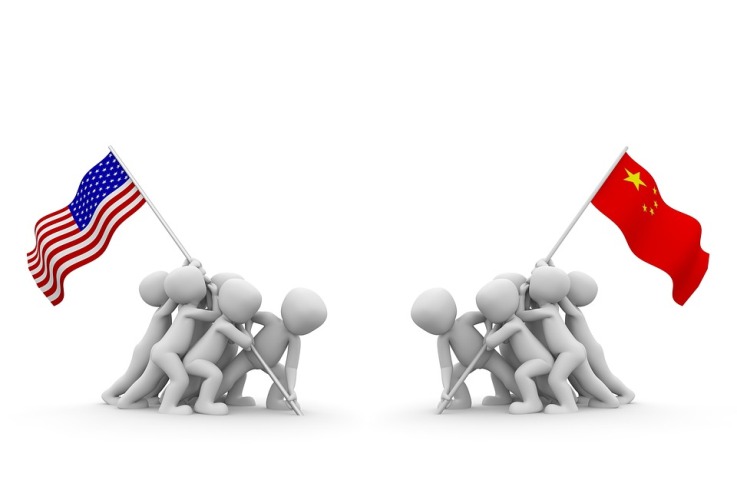Bitterness before US-China Trade Deal on Wednesday
Both the superpowers are going to sign Phase 1 of the US-China Trade Deal on Wednesday. The stock markets are hovering on all time high but the questions are being raised on sustainability of the deal as spat continue between them on several fronts.

- Country:
- United States
The markets in the US are hovering as the US and China are scheduled to sign the Phase 1 of the trade deal on Wednesday and announcement has also been also made for negotiation on Phase 2. This trade is being seen with much hope by economists and investors from throughout the world as it was imminent to fight the global slowdown.
Therefore, everybody wants the deal to be done but nobody seems confident about its sustainability. This is because while both the partners are engaged in bitter duals before going to sign the deal on Wednesday. The first note of caution came from Executive Vice President of the US Chamber of Commerce Myron Brilliant who is presently in Chinese capital Shanghai. “Implementation of Phase-1 will be important to build trust and certainty, building off the success of the negotiation," said Brilliant, who said he had been briefed on the text of the accord but not seen it. But while the Phase 1 accord "stops the bleeding", he said. "at the same time it's important that the two sides demonstrate a commitment to moving forward on the Phase 2 negotiations,” he was quoted as saying . This statement is not a guess but actually summarizes the activities between both the countries that are engaged on several diplomatic fronts. In fact, the trade war between the US and China is more diplomatic fight for overall supremacy than a fight for trade, business and economy. This fight was visible on at least three fronts on Monday.
Chinese Response on reelection of Ing-wen
Taiwan has been a controversial issue between China and the USA. In the ongoing elections in Taiwan, the US agencies succeeded in ensuring the reelection of the President Tsai Ing-wen. The President is considered close to the US but anti to China. This election was an issue of prestige between both the countries. After the results went against the expectations of China, an angry dragon cursed the Wen and her supporters.
“Separatists will stink for 10,000 years,” said Chinese State Councilor Wang Yi. He also emphasized on "one China" principle that recognizes Taiwan as being part of China had long since become the common consensus of the international community. "This consensus won't alter a bit because of a local election on Taiwan, and will not be shaken because of the wrong words and actions of certain Western politicians," Wang added, in an apparent reference to U.S. Secretary of State Mike Pompeo.
Human Rights Issue in Hong Kong
The United States is making all efforts to reach out pro-democracy protests in Hong Kong. However, China has stonewalled all its efforts. The US, despite the objections and threats of China enacted a law – Hong Kong Human Rights and Democracy Act 2019 - to help the pro-democracy protests in Hong Kong.
In a recent action, Chinese agencies on January 12 barred Mr. Kenneth Roth, the head of New York based NGO – Human Rights Watch – from entering in Hong Kong. Defending the decision, the Chinese government blamed the international NGOs for political instability in Hong Kong. In fact, China has put a blanket ban on US based NGOs from entering in Hong Kong as the US President Donald Trump ignored the warning of China and singed the Hong Kong Human Rights and Democracy Act 2019. The human rights bodies from throughout the world has been blaming China for violating the human rights in Hong Kong and harassment against minorities but China never pays heed to their concerns.
Social Media access to diplomats
In a major decision on Monday, China allows its foreign missions, diplomats and government officials to use social media platforms such as Twitter, Facebook, WhatsApp etc. to connect with their people.
As all these social media platforms are based in the US, China has banned them for its citizens and government officials in the country. However, the diplomats and personnel posted in the foreign missions of China have been allowed. This strategy would ensure a double benefit for China. The dragon will be protecting its market from US companies and simultaneously monitoring activities of the US companies in addition to its declared policy of establishing a connection with the people.
A long list of contentious issues
The list of contentious issues between the US and China is too long. They include their respective interests in Pakistan, Iran, North Korea and South Korea, trade interests in African countries, European Union, Climate Change and Space etc. The present deal is good but it would be better and sustainable if both the countries could work together to solve their diplomatic issues as well.
(Disclaimer: The opinions expressed are the personal views of the author. The facts and opinions appearing in the article do not reflect the views of Devdiscourse and Devdiscourse does not claim any responsibility for the same.)
- FIRST PUBLISHED IN:
- Devdiscourse










